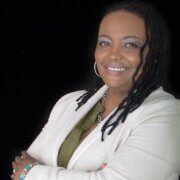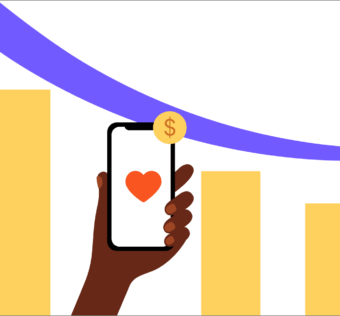The Olympics: 5 Lessons for Philanthropy

The world remains captivated by the formidable display of athletic prowess and competition at the 2022 Olympics in Beijing. Let’s take a moment to focus on five lessons the Winter Games can teach us about philanthropy.
From ancient Greece to worldwide movements
The Olympics have more in common with philanthropy than you would first think. Both have their roots in the history and language of ancient Greece.
According to Olympics history, athletes participated in games that were first staged in Olympia, Greece. Even when the modern Games were moved to Athens in 1896 the name remained the same. Whether the event is in Beijing, China, this year, or Paris for the 2024 Summer Olympics, we still call it the Olympics.
Philanthropy, meanwhile, is the combination of two Greek words meaning “to love” and “humankind.” And, like the Olympics, it has evolved into a movement – not of athletes, but of inspired givers.
In 2020, Americans gave $471.44 billion, which reflects a 5.1 % increase from 2019, per charitable giving statistics provided by the National Philanthropic Trust.
The largest source of charitable giving came from individuals (as opposed to corporations and foundations) at $324.10 billion, or 69% of total giving in 2020. In five of the last six years, charitable giving by individuals has grown, according to the Giving USA 2021 Annual Report.
The Olympics has also experienced unprecedented growth. Today, the Winter Games are a technology-fueled sports festival that boasts:
- nearly 3,000 athletes
- 100 countries represented
- 109 medal events
- 15 sports, including figure skating, hockey, and ice dancing
The schedule for the Summer Olympics and participation are usually more than triple those numbers.
These two Greek-rooted movements – the Olympics and philanthropy – are both committed to putting more good into the world. The Olympics aim to do so through culture, education, and the spirit of sportsmanship. Philanthropy does so through the generous donation of money to worthy causes.
Let’s see what we can learn from both.
5 Olympic lessons for philanthropy
The Olympic rings are five interlocking blue, yellow, black, green, and red rings. They symbolize the five areas – Europe, Asia, Africa, the Americas, and Oceania – involved in the Olympic movement. Inspired by that symbolism, here are five lessons to ponder while you watch the Winter Games.
Olympics Lesson #1: Never an Olympian, but always a philanthropist
Athletes must be considered the best players in their chosen sport in their country to even be considered for the Olympic team. And then they must regularly compete on a world-class level. Competition is intense, to say the least, and only a limited few will ever participate in the Olympics.
Here’s a simple truth: We all can’t be Olympians, but we can all be philanthropists. Philanthropy is no longer reserved for billionaires and celebrities. Everyone is a philanthropist.
Philanthropy, which is simply the “love of humankind,” is being reimagined to include everyday givers – like the 1.1 million donors who use Givelify. These givers are changing the world with one simple joyful gift. They give to churches, organizations, and causes that matter most to them. These causes include life-changing missions like hunger relief, disaster relief, shelter and housing, and education.
Olympics Lesson #2: Consistency is key
To even be considered for an Olympic team, coaches say it’s common for athletes to invest four to eight years training. And then participating on an international stage at an elite level requires consistency.
The same is true for philanthropic giving. Consistent givers have a heart for faithful giving and are fundamental to making a difference in their local communities and worldwide. At Givelify, consistent givers has led to nearly $3 billion in donations across more than 55,000 organizations. In fact, 55% of donors on Givelify remained consistent or increased their online and mobile giving in 2020.
Givers can practice philanthropy with the Givelify mobile app by accessing giving reminders and recurring giving features. Both features will help them stay on track with their giving goals for the year. For churches and organizations looking to fuel their vision through 2022, they can sign into their Givelify Analytics Studio. There, they can tap into the information needed to grow consistent givers and supercharge their generosity.
Olympics Lesson #3: Embrace innovative technologies
The Beijing 2022 mascot is a cute panda named Bing Dwen Dwen. “Bing” means ice in Mandarin Chinese and symbolizes purity and strength. “Dwen Dwen” means robust and lively and represents children.
The panda mascot is wearing a full-body “shell” made of ice that resembles an astronaut suit, which is a tribute to embracing modern technologies. Through technology, Givelify has helped to democratize philanthropy. Rated 4.9 stars out of 5 after more than 90,000 reviews, Givelify is the highest rated technology for advancing generosity in the world. Every gift – no matter the size – matters.
Certainly, the pace of change in technology is also very quick. Mobile app-based giving is the here and now. Text-based giving is becoming a relic increasingly reminiscent of ancient Greece.
While texting can be a wonderful tool for communicating with congregations, it is not ideal for church giving. In fact, text-to-give options are becoming less popular. Text is not as convenient as app-based giving.
Olympics Lesson #4: Tell your story
The medal count and sports highlights aren’t the only reasons we watch two weeks of Olympics news. We also love the athletes’ Olympic stories. For instance, during the Beijing games, we learned that:
- Abby Roque became the first Indigenous woman to play hockey for the Olympics women’s hockey team.
- During the monobob’s debut as an Olympic sport, Kaillie Humphries won gold and Elana Meyers Taylor took silver. Taylor faced an uphill battle just to compete in the Games after testing positive for COVID-19 two days after arriving in Beijing.
- U.S. speed skater Erin Jackson became the first Black woman to win a speedskating medal at the Winter Olympics. However, Jackson almost missed the competition entirely. She fell during the qualifying trials. But her teammate and friend Brittany Bowe gave up her own spot. This ensured that Jackson, as the world No. 1, was able to go to Beijing.
Stories such as these help keep the Olympics global audience glued to their screens as they process the personal stories of athletes as they compete on a global stage. Moreover, knowing their stories help endear them to us.
The same could be true for your church or organization. You should regularly show the impact of online and mobile giving on your mission. Churches and organizations should share the positive, meaningful change your organization has created. Nothing makes a giving experience more joyful than finding out the impact of one’s generosity.
Olympics Lesson #5: Faster, higher, stronger – together
In Latin, the Olympic motto now reads “Citius, Altius, Fortius – Communiter.” In July 2021, the International Olympic Committee added the word “together,” as in “Faster, Higher, Stronger – Together.” This change recognizes the unifying power of sport and the importance of solidarity.
“Solidarity fuels our mission to make the world a better place through sport. We can only go faster, we can only aim higher, we can only become stronger by standing together — in solidarity,” the IOC said.
At Givelify, our tagline is “More good together.” The “together” in that statement is key. Donors and organizations together change the world each time they practice kindness and give generously. We are honored to be part of this story, and the technology that helps fuel more good.



